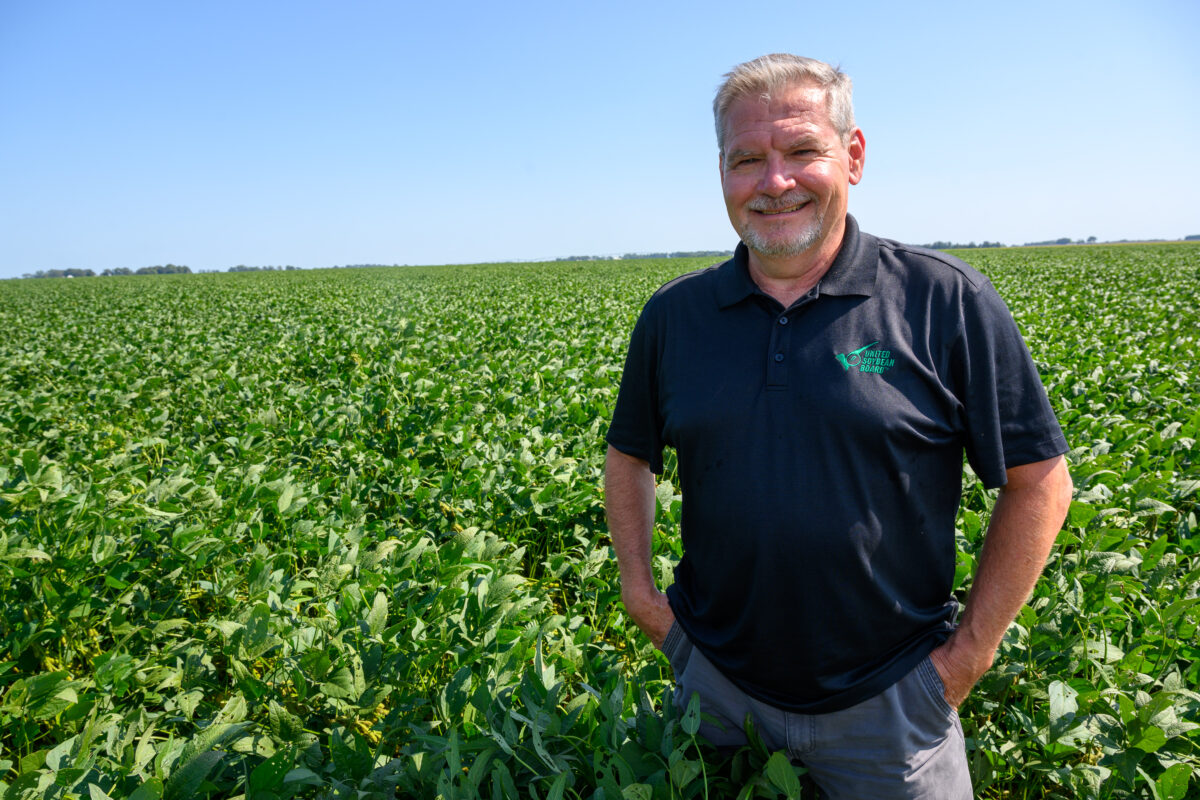New Biodiesel Research Findings Indicate Health Benefits

Study results show biodiesel use in place of petroleum-based fuels prevents
health issues and results in cost savings for thousands nationwide.
ST. LOUIS (April 29, 2021) — A new study demonstrates switching to biodiesel results in a number of significant health benefits such as decreased cancer risk, fewer premature deaths and reduced asthma attacks.
The fuel research, conducted at 13 sites in the U.S. exposed to high rates of petroleum diesel pollution, used well-established EPA air dispersion modeling tools coupled with health risk assessments and benefit valuations to assess the public health benefits and resulting economic savings of converting from petroleum-based diesel to 100% biodiesel, known as B100.
The research was sponsored by the National Biodiesel Board with support from the Nebraska Soybean Board, South Dakota Soybean Research & Promotion Council, California Advanced Biofuels Alliance, Iowa Soybean Board and the Wisconsin Soybean Marketing Board, in addition to promotional support from the soy checkoff.
Biodiesel is a readily available, low-carbon, renewable fuel made from a diverse mix of resources such as recycled cooking oil, soybean oil and animal fats. U.S. manufacturers rely on U.S. soybean oil as the primary feedstock for biodiesel, and it was the first domestically produced and commercially available fuel to meet the Environmental Protection Agency’s definition of an advanced biofuel. Today, about 8 billion pounds of soybean oil are used in the production of conventional biodiesel. By 2030, it’s estimated that an additional 8 billion pounds will be needed totaling 16 billion pounds per year, according to National Biodiesel Board.
“The soy checkoff is a longtime supporter of research and promotion for biodiesel to ensure it continues to be one of the most widely used renewable fuels on the market,” said Pat Hobbs, United Soybean Board farmer-leader from Dudley, Missouri, and National Biodiesel Board appointee. “Soybean farmers led the original development of the biodiesel industry to use excess soybean oil. Biodiesel made from soybeans uses only the oil portion of the soybean, leaving all of the protein available to nourish livestock and humans. Now, this new study shows how far-reaching the health and environmental benefits can be for people nationwide.”
Researchers found that switching to 100% biodiesel in the home heating oil and transportation sectors would provide immediate community health improvements that can be measured in reduced medical costs and health care benefits, including:
- Preventing 340 premature deaths annually.
- A 45% reduction in cancer risk when heavy-duty trucks such as semis use B100, and an 86% reduced risk when biodiesel is used for home heating oil.
- Annually, about 203,000 fewer or lessened asthma attacks based on vehicle use of B100, and 17,000 fewer lung problems as a result of using biodiesel to heat homes.
- Annually, 46,000 fewer sick days resulting from B100 use in heavy-duty trucks and home heating oil.
- Avoiding $3 billion in health costs each year as a result of switching from petroleum diesel to B100, driven largely by biodiesel’s significant ability to reduce particulate matter emissions.
“We have always known that biodiesel offers a cleaner alternative to petroleum diesel,” said Donnell Rehagen, National Biodiesel Board CEO. “This study quantifies the health benefits and shows that by using renewable fuels like biodiesel and renewable diesel, we are bringing positive change to people’s lives, the nation’s health and the economy.”
The study considered the economic cost of premature deaths, asthma cases, reduced activity due to poor health, and work impacted due to sick days. For example, researchers found the communities surrounding the Port of Los Angeles/Long Beach would avoid about $1.69 billion in health costs due to improved air quality in the form of reduced premature deaths and health care costs and increased productivity.
Although these numbers represent findings from just 13 sites and communities, they are truly the tip of the iceberg. B100 can achieve these benefits by reducing pollution from markets that are hardest to decarbonize: heavy-duty transportation and residential heating.
“Saving lives by reducing the health impacts of transportation and home heating fuels is a priority, and biodiesel is widely available today to achieve that goal,” said Rehagen. “These immediate and substantial emissions and health benefits can be an important part in any state, regional or national climate program as our nation moves toward decarbonization through advanced alternative fuels like biodiesel and renewable diesel. The immediacy of these potential health benefits, especially for disadvantaged communities, is even more critical when one considers the years it will take for states to pursue deep electrification and other decarbonization strategies.”
The study was conducted by Trinity Consultants, which has over 40 years of experience conducting air dispersion modeling and related health risk assessments, among its many areas of expertise. Trinity operates 69 offices internationally and has performed air dispersion modeling for industrial facilities, utilities and government agencies.
About United Soybean Board: United Soybean Board’s 78 volunteer farmer-directors work on behalf of all U.S. soybean farmers to achieve maximum value for their soy checkoff investments. These volunteers invest and leverage checkoff funds in programs and partnerships to drive soybean innovation beyond the bushel and increase preference for U.S. soy. That preference is based on U.S. soybean meal and oil quality and the sustainability of U.S. soybean farmers. As stipulated in the federal Soybean Promotion, Research and Consumer Information Act, the USDA Agricultural Marketing Service has oversight responsibilities for USB and the soy checkoff. For more information on the United Soybean Board, visit unitedsoybean.org.
About National Biodiesel Board: Made from an increasingly diverse mix of resources such as recycled cooking oil, soybean oil and animal fats, biodiesel and renewable diesel are better, cleaner fuels that are available now for use in existing diesel engines without modification. NBB is the U.S. trade association representing the entire biodiesel and renewable diesel value chain, including producers, feedstock suppliers, and fuel distributors. For more about biodiesel, visit www.biodiesel.org.
###
Contact:
Paul Murphy-Spooner at United Soybean Board, 515.975.6584.
Liz McCune at National Biodiesel Board, 573.635.3893.



